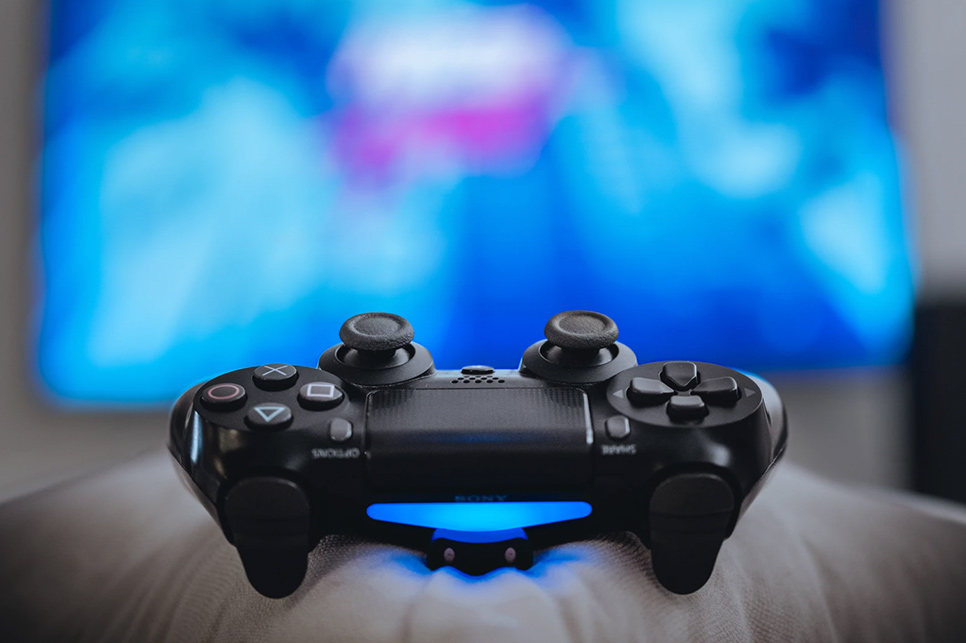That new PlayStation 5 or Xbox Series X was the highlight of your holiday gift-giving this past holiday season. Given that your family has been cooped up during the pandemic — and especially during the cold, dark days of winter — any shakeup to the usual indoor entertainment routine will be welcomed with open arms. But are there any health risks involved with long-term gaming? How does video gaming affect ADHD?
“I wouldn’t say that videogames are 100 percent harmful to people with ADHD,” says Ken Fierheller, a registered psychotherapist in Calgary, Alberta. Long story short: gaming is okay — perhaps helpful — in moderation. Playing for long, uninterrupted periods of time, however, may have harmful long-term effects on focus, as well as on time management — and in severe cases, negligence of daily tasks.
Gaming: good, bad, or in between?

Recent research corroborates this line of thinking. According to a study that ran in July 2018 in the Journal of the American Medical Association, 15- and 16-year-olds previously determined not to have baseline ADHD who frequently used modern digital media — including video games — over a 24-month period were more likely to show symptoms of ADHD.
“We can’t confirm causation from the study, but this was a statistically significant association,” said Adam Leventhal, PhD., a professor of preventive medicine and psychology at the University of Southern California. “We can say with confidence that teens who were exposed to higher levels of digital media were significantly more likely to develop ADHD symptoms in the future.” While this study also comprised the use of other digital interactive tools such as social media, video gaming use can, in fact, make users more likely to get distracted when not gaming.
One Hour a Week of Gaming Correlated With Better Academics, Motor Skills; Nine Hours of More Linked to Poor Social Behavior

Yet research has shown gaming to have some benefits. A study that ran in the Annals of Neurology in July 2016 of 2,442 children aged 7 to 11 years showed that subjects who played video games for an hour a week had higher school test scores and better motor skills.
However, playing more than one hour of video games per week had some pretty negative associations. Gaming for more than two hours a week had no extra benefits, and playing games for nine or more hours a week was linked to adverse social behavior, including conflicts with peers.
At the same time, MRIs of children participating in the study revealed an intriguing finding: “Gaming use was associated with better function in brain circuits critical for learning based on the acquisition of new skills through practice,” said Jesus Pujol, MD, of the Hospital del Mar in Barcelona, one of the study’s authors.”Children traditionally acquire motor skills through action, for instance in relation to sports and outdoor games. Neuroimaging research now suggests that training with desktop virtual environments is also capable of modulating brain systems that support motor skill learning.” This makes sense: anyone who’s worked a joystick or gaming controller could see the potential for gaming developing hand-eye coordination.
Connections between ADHD and gaming

Think about what sells video games and their various sequels. Flashier graphics. Music that corresponds with your level in the game. Amplified player-game interactivity with each new version. All of these facets of gaming are designed to hold the player’s attention. The consequence? Many heavy gamers rely on stimuli from within the game to sustain their focus. When in relatively quiet surroundings, such as a live or virtual classroom, the lack of stimuli can mean that heavy gamers’ attention can be aimless.
Douglas Gentile, PhD., an expert on psychology of media and videogames, conducted a three-year study of more than 3,000 children and adolescents in Singapore. The findings of the study, published in 2012, showed that “consistent with previous research, those who spend more time playing video games subsequently have more attention problems.”
This being said, the studies showed a bit of a chicken-and-egg scenario: “Children with greater impulsiveness and attention problems spend more time playing video games, which in turn increases subsequent attention problems and impulsiveness. This finding does not alter the cause for concern about the potential for video games to contribute to the development of attention problems.” In short, people who need external stimulation to focus might naturally be drawn to video games. The stimuli might keep them there.
There’s also the issue of getting instant rewards and positive feedback. Many who suffer from ADHD might be facing bad grades or difficulties relating to peers. “One of the biggest problems for people with ADHD is social skills,” says Fierheller. “Playing games could make social life even worse because, obviously, you don’t interact with people in real life.” Video games can offer a judgement-free environment that offers instant gratification for winning without having to navigate the social network of playing on a team.
Moreover, video games can promote hyperfocus, a symptom of ADHD in which someone becomes completely engrossed in the task at hand, becoming blind to time and surroundings. Granted, this can be beneficial to ADHD sufferers looking to get through a classic tome assigned for English class. Being able to block out extraneous noise and get through a 10-page paper with few distractions would be a cause for envy among classmates. But when the hyperfocus subject is a distraction such as video gaming, it can be problematic and detrimental to daily life.
Life-gaming balance

Studies such as the 2016 Annals of Neurology study suggest there is some benefit to a moderate amount of video game playing, such as teaching hand-eye coordination. Plus, the very factors that can make games attractive to people with ADHD are an integral facet of many gamified learning edtech tools: offering badges and points can be a helpful carrot-and-stick to get through math levels or spelling and allow learners to move at their own pace.
There is also the issue of gaming as a safe space. “If a person feels that communication with a narrow gaming community via chats and voice chats fits him/her better, this can be a great opportunity to make the process of improving social skills lighter,” continues Fierheller. Granted, parents of children going on gaming-related voice chats and message boards should instill safe Internet habits and keep tabs on behavior to prevent cyberbullying.
So how much gaming is too much? The World Health Organization has identified gaming disorder as an addiction, defined as “impaired control over gaming, increasing priority given to gaming over other activities to the extent that gaming takes precedence over other interests and daily activities, and continuation or escalation of gaming despite the occurrence of negative consequences.” The WHO goes on to point out that the vast majority of people who play video games don’t rise to this level. Yet heavy video gaming can be a burden on work or relationships.
Is gaming becoming such an encompassing factor in your child’s life that their Minecraft build is supplanting their reading? Is your spouse ignoring your movie nights on the couch in favor of a team World of Warcraft raid with random people online? If so, it might be time to have a gentle conversation about your loved one’s video game playing.
Conclusion
Will that new gaming system be the beginning of the end of your child’s grades and social life? With moderation, likely not. Video games can be a source of joy and exploration, as well as offering a sense of accomplishment. This being said, if ADHD is a concern, be sure to take a bit more caution with moderating controller and screen time. Make it a household policy to include games with an educational bent or those that incorporate exercise, such as Dance Dance Revolution. When used the right amount and with the right content, video games can help bring learning to the next level. As Fierheller says, “The best way to identify if games can help with the disorder is to consult with a specialist and use the personal approach.”
Digital tools such as Narbis Neurofeedback smart glasses can help train the brain to focus and stay on task. Learn more about how brain science can help your productivity and teach your brain what it feels like to pay active attention at narbis.com.

